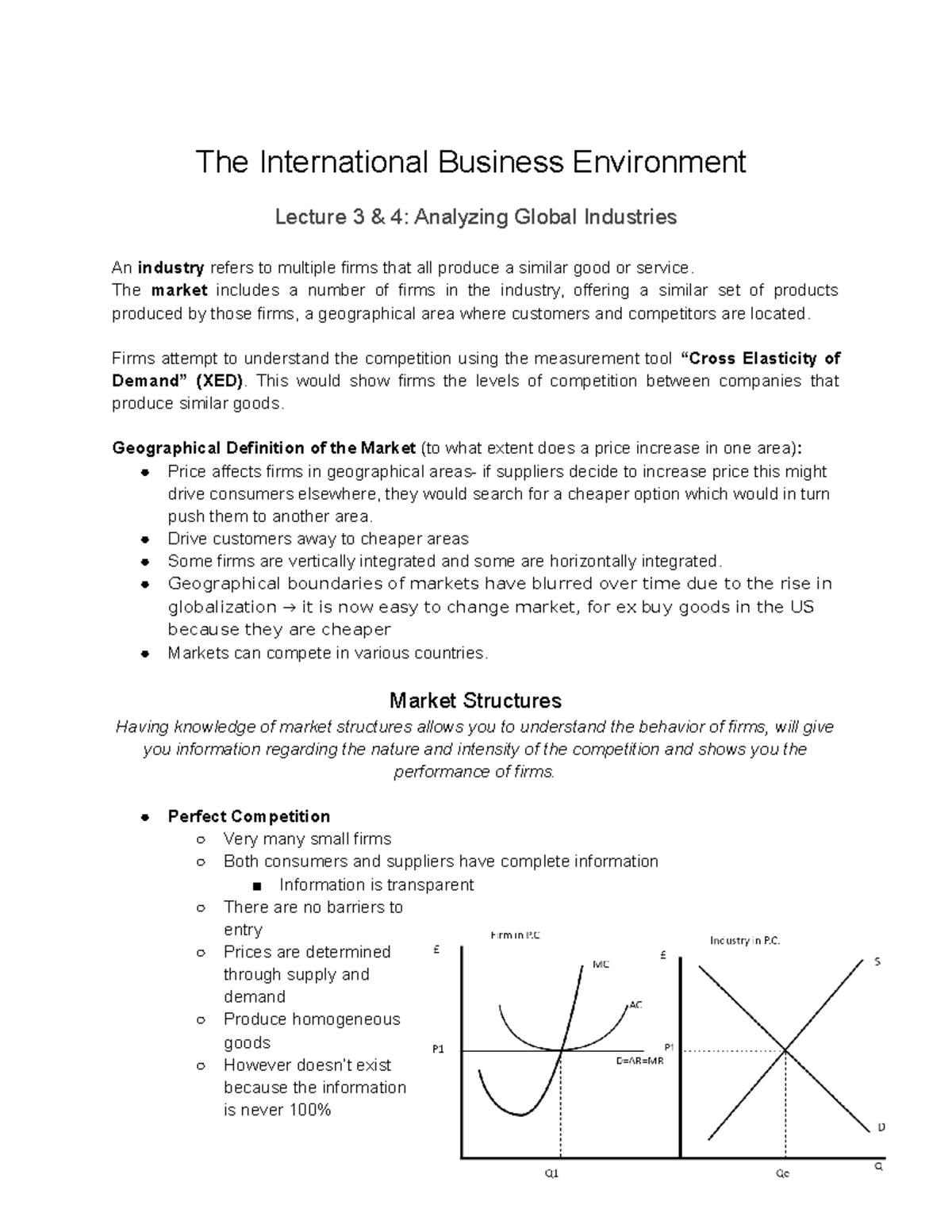The Fracturing Relationship: Understanding The Breakdown In U.S.-China Relations And Its Implications

Table of Contents
The deterioration of U.S.-China relations is arguably the most significant geopolitical development of the 21st century. This complex and rapidly evolving relationship impacts global trade, security, and the very fabric of the international order. Understanding the intricacies of U.S.-China relations is no longer a matter of academic interest; it's a critical necessity for navigating the challenges of our time. This article will explore the key factors contributing to the breakdown in U.S.-China relations and analyze its far-reaching implications.
<h2>Historical Roots of Distrust</h2>
The current strained relationship between the United States and China isn't a sudden development; it's rooted in decades of historical tensions and differing worldviews. The legacy of the Cold War, marked by ideological clashes and proxy conflicts, casts a long shadow. The Korean War, for example, solidified a deep-seated mistrust between the two nations. Furthermore, the fundamentally different political systems – the U.S.'s liberal democracy versus China's authoritarian communism – create inherent challenges to mutual understanding and cooperation.
The issue of Taiwan remains a particularly sensitive flashpoint. China considers Taiwan a breakaway province, while the U.S. maintains a policy of "strategic ambiguity" regarding its defense. This ambiguity, however, hasn't prevented escalating tensions and military posturing around the island. Adding to this historical baggage are decades of trade disputes and economic competition, which have frequently escalated into full-blown trade wars.
- The Cold War and its legacy: Ideological differences and proxy conflicts fueled initial mistrust.
- The Taiwan issue and its ongoing sensitivity: A potential military conflict over Taiwan could have devastating global consequences.
- Trade disputes and economic competition: Decades of economic friction have created deep-seated resentment on both sides.
<h2>Economic Competition and Trade Wars</h2>
The economic relationship between the U.S. and China is simultaneously deeply intertwined and intensely competitive. Significant trade imbalances have long been a source of friction, with the U.S. consistently running a large trade deficit with China. The imposition of tariffs and trade restrictions, particularly during the 2018 trade war, further exacerbated these tensions, impacting global supply chains and contributing to economic uncertainty.
China's remarkable economic rise has challenged the long-held U.S. dominance in the global economy. This economic competition extends beyond simple trade; it encompasses intellectual property rights, technology development, and control of key industries like 5G and artificial intelligence (AI).
- The 2018 trade war and its consequences: Tariffs and retaliatory measures disrupted global markets and damaged business confidence.
- Intellectual property theft concerns: Allegations of intellectual property theft have fueled accusations of unfair trade practices.
- Competition in technology sectors (5G, AI): The race for technological dominance is a key driver of strategic rivalry.
<h2>Geopolitical Rivalry and Strategic Competition</h2>
Beyond economic competition, the U.S. and China are engaged in a broader geopolitical rivalry for global influence. China's Belt and Road Initiative (BRI), a massive infrastructure project spanning multiple continents, is a prime example of its growing global reach and ambition to reshape the global economic order. Simultaneously, China's significant military buildup, particularly in the South China Sea, has heightened regional tensions and prompted concerns about its intentions.
This geopolitical competition extends to vying for alliances and partnerships worldwide. Both nations actively court other countries, seeking to secure their support and influence in international organizations.
- China's growing military power and its projection of influence: China's expanding military capabilities are a significant factor in the escalating tensions.
- Competition for alliances and partnerships: Both nations actively seek to expand their spheres of influence through diplomatic efforts.
- The role of international organizations: The competition for influence plays out within international bodies like the UN and the WTO.
<h2>Ideological Differences and Human Rights Concerns</h2>
Fundamental differences in values and ideologies further complicate U.S.-China relations. The U.S. prioritizes democracy, human rights, and individual liberties, while China's authoritarian system prioritizes social stability and economic development. This divergence is reflected in ongoing concerns about human rights abuses in Xinjiang, Hong Kong, and Tibet. These issues are not merely human rights concerns; they have a direct impact on bilateral relations and international collaborations.
- The issue of human rights in China: Concerns over human rights violations in Xinjiang, Hong Kong, and Tibet are major obstacles to improved relations.
- Freedom of speech and press concerns: Restrictions on freedom of expression in China are another significant point of contention.
- Impact on diplomatic relations and international collaborations: Human rights concerns often strain diplomatic ties and hinder cooperation on global issues.
<h2>Implications for the Global Order</h2>
The breakdown in U.S.-China relations has profound implications for the global order. The risk of increased military tensions, potentially escalating into direct conflict, is a major concern. Moreover, the economic interdependence between the two nations means that any significant escalation could trigger a global economic crisis. Disruptions to global supply chains, coupled with increased protectionism, could have devastating consequences for international trade and economic stability. The potential for a new Cold War, with its attendant dangers, is a very real possibility.
- The impact on global supply chains: Disruptions to supply chains could lead to shortages and price increases globally.
- The risk of increased military tensions: The potential for miscalculation and accidental escalation of conflict is significant.
- The potential for a new Cold War: The rivalry between the U.S. and China risks creating a new era of geopolitical division.
<h2>Conclusion: Navigating the Complexities of U.S.-China Relations</h2>
The deterioration of U.S.-China relations is a multifaceted issue stemming from historical distrust, economic competition, geopolitical rivalry, and ideological differences. The implications for global stability and the international order are immense, ranging from economic instability to the potential for armed conflict. De-escalation requires improved communication channels, a commitment to diplomatic solutions, and a willingness to find common ground on areas of mutual interest. Understanding the intricacies of U.S.-China relations is crucial for navigating the complexities of the 21st-century global landscape. Further research into the various facets of U.S.-China relations is vital for informed decision-making and promoting peaceful coexistence. Continue learning about the evolving dynamics of U.S.-China relations to contribute to a more stable and secure future.

Featured Posts
-
 500 Million Settlement Looms In Canadian Bread Price Fixing Case May Hearing Date Confirmed
Apr 22, 2025
500 Million Settlement Looms In Canadian Bread Price Fixing Case May Hearing Date Confirmed
Apr 22, 2025 -
 Post Roe America How Otc Birth Control Changes The Landscape
Apr 22, 2025
Post Roe America How Otc Birth Control Changes The Landscape
Apr 22, 2025 -
 Analyzing Geographic Shifts In Business Activity Nationwide
Apr 22, 2025
Analyzing Geographic Shifts In Business Activity Nationwide
Apr 22, 2025 -
 Ukraine Conflict Intensifies After Russia Ends Easter Ceasefire
Apr 22, 2025
Ukraine Conflict Intensifies After Russia Ends Easter Ceasefire
Apr 22, 2025 -
 Blockchain Analytics Leader Chainalysis Integrates Ai Through Alterya Purchase
Apr 22, 2025
Blockchain Analytics Leader Chainalysis Integrates Ai Through Alterya Purchase
Apr 22, 2025
